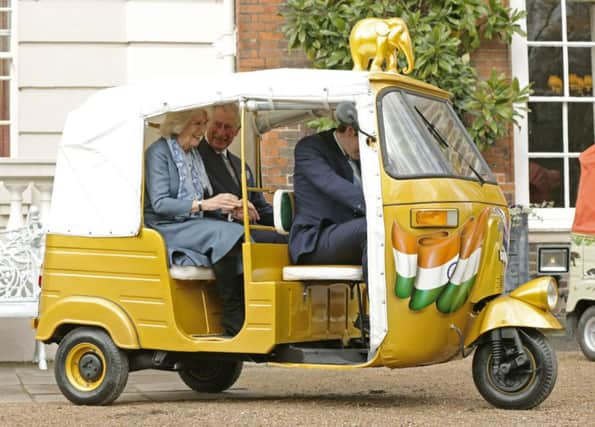Prince Charles government memos set to be released


A Number 10 spokeswoman, who was unable to give any timetable for disclosure of the letters, said that following the judgment by the UK’s highest court “we will now need to undertake the preparatory work to determine how best to release the correspondence”.
She said: “The preparatory work we are doing is to look at what information we release and the best way to do that.”
Advertisement
Hide AdAdvertisement
Hide AdBoth Clarence House and the Prime Minister expressed disappointment after the Supreme Court dismissed a challenge by the Attorney General, the government’s principal legal adviser, against a decision by the Court of Appeal last year that he unlawfully prevented the public seeing the royal correspondence.
A spokeswoman for the prince said after yesterday’s ruling: “This is a matter for the government. Clarence House is disappointed the principle of privacy has not been upheld.”
Prime Minister David Cameron said: “This is a disappointing judgment and we will now consider how to release these letters. This is about the principle that senior members of the royal family are able to express their views to government confidentially.
“I think most people would agree this is fair enough.
“Our FOI (Freedom of Information) laws specifically include the option of a governmental veto, which we exercised in this case for a reason. If the legislation does not make parliament’s intentions for the veto clear enough, then we will need to make it clearer.”
The case – believed to mark the first time anyone has challenged the Attorney General’s powers to block access to information – went to the Supreme Court after appeal judges unanimously ruled he had “no good reason” for using his ministerial veto and overriding the decision of an independent tribunal, chaired by a High Court judge, in favour of disclosure of the letters.
The latest ruling in the long-running dispute over disclosure of the letters is a blow for Prince Charles. Sent to seven government departments, the frank notes penned between September 2004 and March 2005 reflect, according to previous attorney general Dominic Grieve, the prince’s “most deeply held personal views and beliefs”.
Prince Charles has long been accused of “bombarding” ministers with “black spider” memos attacking government policy. His letters are so-named after his distinctive handwriting and abundant use of underlining and exclamation marks.
In 2005 Guardian journalist Rob Evans applied to see a number of written communications between Charles and various government ministers, seeking disclosure under the Freedom of Information Act 2000 and under “environmental information regulations”.
Advertisement
Hide AdAdvertisement
Hide AdAn “upper tribunal” declared in September 2012 that he was entitled to see “advocacy correspondence”, described as letters the prince had written seeking to advance the work of charities or to promote views. It decided that the government was required to disclose 27 out of the 30 requested items.
FOLLOW US
SCOTSMAN TABLET AND MOBILE APPS